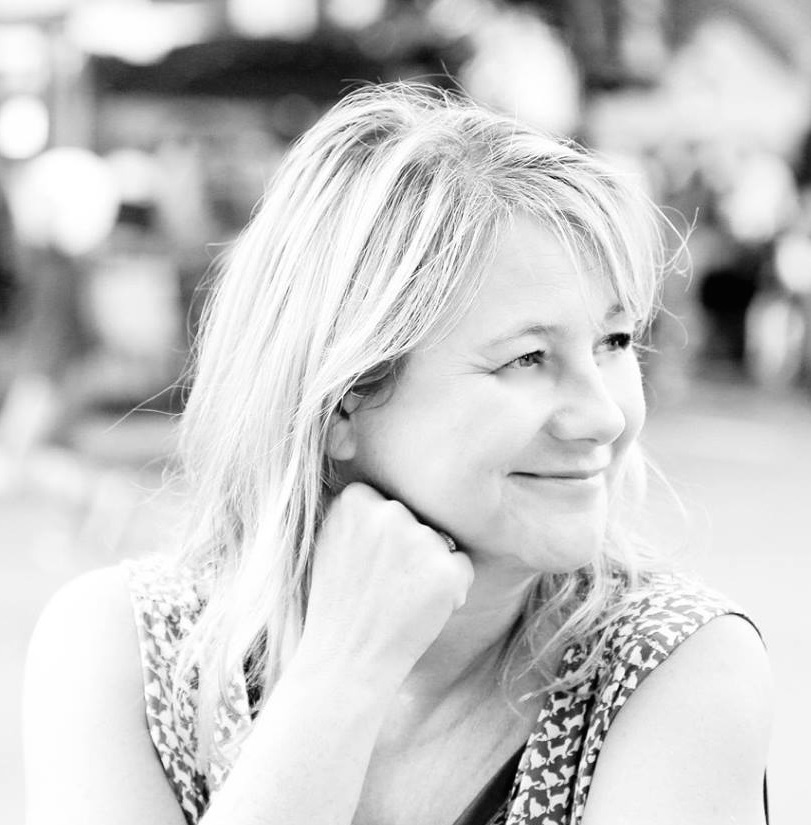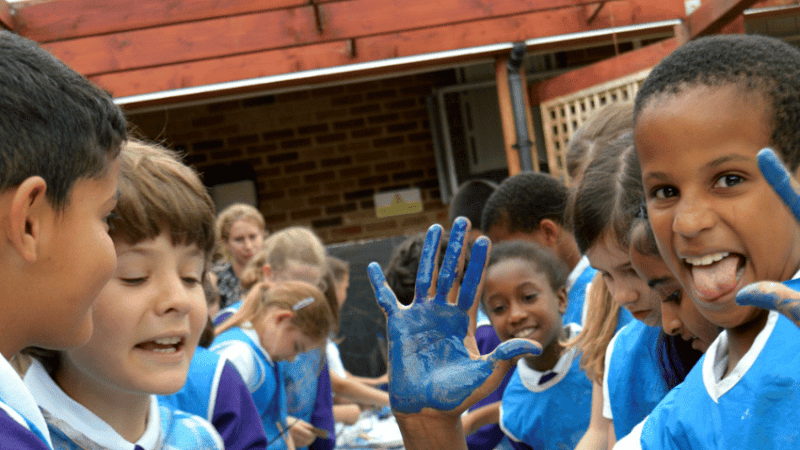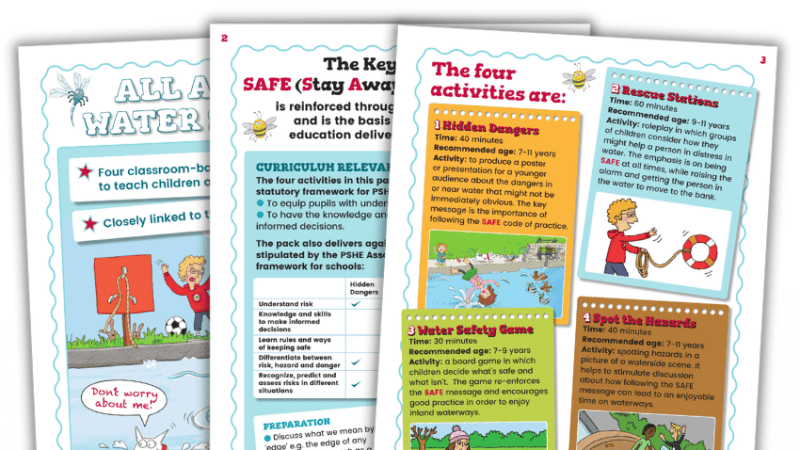Schools should be fertile grounds to nurture children’s talents

We must put aside SATs and RI grades if the curriculum is to remain broad and balanced, argues Debra Kidd… Michael is eight. He loves Geography – particularly, if we’re honest, natural disasters. He can tell you all about pyroclastic flow and tectonic plate movements. He can spell ‘tsunami’ and explain what’s happening to the […]

- by Debra Kidd

We must put aside SATs and RI grades if the curriculum is to remain broad and balanced, argues Debra Kidd…
Michael is eight. He loves Geography – particularly, if we’re honest, natural disasters. He can tell you all about pyroclastic flow and tectonic plate movements. He can spell ‘tsunami’ and explain what’s happening to the Arctic ice sheets.
But on his report it says that he is an ‘A’ for geography. It sounds great, but actually, A stands for ‘At expected level of achievement’. It’s better to be an ‘E’. But not as bad as being a ‘B’. He’s an E in maths and English. E stands for ‘Exceeding expectations’. Either his school have very high expectations indeed for geography. Or….
Sacrificing a long-term love of learning
Alanis is 10. She can draw good, recognisable portraits of her idols in One Direction. She’s better with charcoal or pencil, but her watercolours are coming on a treat. Her anatomical drawings of skeletons are superb. She likes combining her interests in the human body with her love of art. She’s an ‘A’ for art. She’s also an A for English but a B for maths – ‘Below expected level of achievement’. Either her school have very high expectations indeed for art. Or…. Brandon is 11 and a regional champion in fencing. He’s won 15 medals and is hoping to go to the National Finals this year. He is at a B for PE because he doesn’t really excel at team sports. And his parents are wondering how he got that grade because his class haven’t done any PE since October. He’s in Year 6. In every class in every school up and down the country, there are children with lights hidden under bushels of bureaucracy. A talent that doesn’t fit neatly into a curriculum tick box, or an interest that falls outside of the curriculum objectives is rarely noticed. This is not a criticism of teachers, but of the system that places blinkers over their eyes. What drives our practices in reality? Of course, it’s the children who get us out of bed and into school every day. But our day-to-day practices and actions are more often than not driven by the need to provide evidence of our competency for others. And that evidence is too often shaped by the values and assumptions of people very far removed from the classroom; people who don’t know Michael or Alanis or Brandon.
We end up in a netherworld in which the actual knowledge of the children counts for less than the knowledge we have decided they should have, regardless of whether or not their achievements are at a higher level of sophistication. In this world, some subjects count for more than others. In this world, a desire to secure results means that we sacrifice a long-term love of learning for short-term gains.
Removing the ignition
When we hear our education secretary announce that studying arts or humanities subjects will hold children back and limit their career choices, we need to seriously question the validity of her statement. We might point to the huge growth in the creative arts industries, who outperformed all other sectors during the recession. Or to statements from the Institution of Civil Engineers, who argue passionately for the place of the arts in the curriculum.
Internationally, across Asia especially, there is a call for STEAM (Science, Technology, Arts and Maths) not just STEM – we’re lagging behind the rest of the world in recognising the place the arts play in developing innovative thinking and entrepreneurial spirit. And that’s before we even start on the joy these subjects bring to children across the world. We are, as a profession, in danger of removing the ignition from the engine of the education system and reducing a child’s learning experience to a set of compliant routines, tests and drills that make them little more than automatons.
But this is not true of every school, and it’s certainly not a vision of education that most teachers held close to their hearts when they came into the profession. For those schools working under the shadow of an RI grade (where no one is ever allowed to coast), it is more difficult than ever to let go of the desperation to lift yourself out of the glare of continuous monitoring – most of which is relentlessly focused on acquiring results.
In these schools, too often we hear ‘We can’t be creative. We have to nail the results/ get the basics in place/ analyse our data/ do whatever our consultant told us to do,’ and it’s the outstanding schools who are given the space, time and freedom to innovate and inspire. How unfair is this?
RI schools are predominantly in deprived areas where the children need to experience cultural capital, articulacy and creativity at the school’s expense, or they won’t get it at all. Yet these children are frequently withdrawn for interventions while their peers get the foundation subjects. They miss out on wonder for work and then we wonder why they won’t work.
Bring awe and wonder into the classroom
We need to value every subject equally and respect a child’s entitlement to a broad and balanced curriculum across every year group. Yes, even in Year 6.
Before people say ‘But!…’ A few years ago there was a question on the SATS paper asking children to describe a busy place. Across the country, most children wrote about shopping centres. So did the children I’d been working with.
But their shopping centre was an Ancient Athenian Agora – their imaginations and writing fired by the drama work we had done, exploring Perseus’ fears as he wondered around the Agora listening to rumours about Medusa. It is perfectly possible to bring awe and wonder into the classroom without compromising on results. But it takes courage, wisdom and imagination. As we move through the next five years, there is no doubt that whatever your views on the current government, there will be no decrease in the pressure placed on test results. No freeing up of curriculum content.
But like a flower growing in the cracks, nor will there be any reduction in the imagination, passion and capacity of a child to learn. Let’s commit as a profession to finding the time to nurture the passions and interests that our children have; to uncovering and discovering what they love and value, and to bringing awe and wonder back into our classrooms.
How to balance your curriculum
1 ‘News of the Week’ Choose a story from the news and use it for discussion (and, of course, reading skills).
2 Make your topics matter Put big questions about life at their heart:“What would a world without borders be like?” “Is the world a fair place?” Link these concepts and ideas across your curriculum. For example, in the last question, you can look at data handling as well as examples and definitions of fairness and unfairness.
3 Look up Mantle of the Expert As an example of a pedagogy that builds responsibility and articulacy in children.
4 If covering literacy objectives such as ‘writing instructions’, get the children to write instructions for other pupils about something they do well A cartwheel or making a cake – whatever they are interested in and good at. Make time for them to share their passions.
Debra Kidd has worked in education for over twenty years, teaching children from the age of four right through to post-graduate students. She has delivered Teacher Training and CPD both in the UK and across the world; for more information, visit debrakidd.wordpress.com or follow @debrakidd











